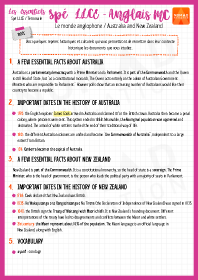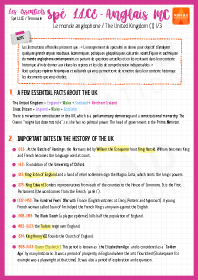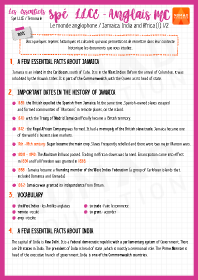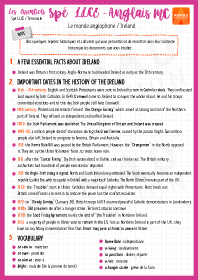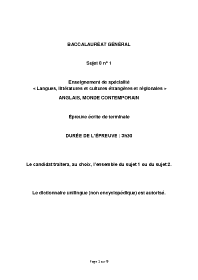The USA is a member of several important international organisations, like the G8 and G20. It is also a permanent member of the Security Council of the U.N. but recently the relations between the US and the UN have been difficult. The Trump administration has been quite critical of global institutions which do not always work in America's interests. In a 2019 speech at the UN, President Trump declared : "America is governed by Americans. We reject the ideology of globalism, and we embrace the doctrine of patriotism. Around the world, responsible nations must defend against threats to sovereignty not just from global governance…" In the same speech, he also targeted the UN Human Rights Council, the International Criminal Court and OPEC. He accused them all of taking advantage of America's generosity and not contributing anything to his country's prosperity. At the top of his list is China: “The United States has just announced tariffs on another another $200 billion in Chinese-made goods…" This trade war intensified during the Covid-19 pandemic when Trump accused China of having created, then exported the virus while hiding its impact. Things reached crisis point in May 2020, when the Chinese foreign minister warned that a new Cold War was about to break out.
Trump's idea that a country is governed by its own people and that no other country should interfere in its affairs echoes the slogans Brexiters came up with in the UK before and after the referendum: "Take Back Control" for example or "Get Brexit done". For a lot of British voters who were in favour of leaving the E.U. the idea of British sovereignty was paramount. A 2019 Financial Times article underlined that "Brexit is about sovereignty and parliament must respect that. What many voters objected to was a supranational government making some of their laws". The "supranational government" they are talking about here is the E.U. Another thing : people who voted for Brexit wanted their government to control was immigration from Europe. One of the first things the Tory government did after Brexit was to put an end to freedom of movement. EU citizens will no longer be able to move to the UK and work there freely. The Conservative government put in place a point-based immigration system which will apply to anyone who wants to immigrate to the UK. A 2016 article in the Financial Times explained that : " Boris Johnson and Michael Gove, the two leading pro-Brexit supporters in the Conservative party, want an “Australian-style points based immigration system” by 2020 that would mark an end to the current situation where workers from other EU countries have an automatic right to work in Britain." Such a system is already in place in Australia and Canada.
Immigration is also one of President Trump's obsessions. In a 2018 speech at the White House, he declared that: "Illegal immigration affects the lives of all Americans. Illegal immigration hurts American workers; burdens American taxpayers; and undermines public safety; and places enormous strain on local schools, hospitals,…" His solution of course was to build a wall between the USA and Mexico and to arrest and deport thousands of illegal immigrants. An article published on 11 January 2019 in The New York Times warned: "Nationwide raids to arrest thousands of members of undocumented families have been scheduled to begin…" The whole world then saw pictures of children, separated from their families, held in cages in detention centres.
The 2020 pandemic, at least for a while, closed borders all over the world and an article published in The Economist in May 2020 asked the question: "Has Covid-19 killed globalisation? The flow of trade, people and capital has slowed."

